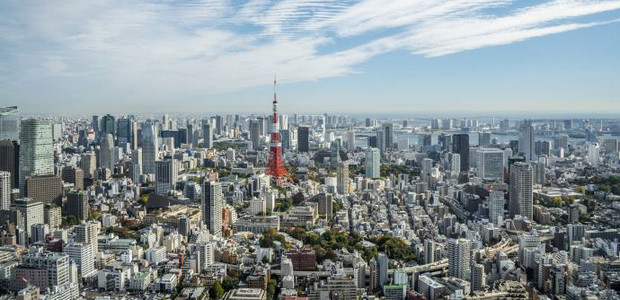Case studies unveiled for ATMO Japan 2017

The first round of case studies showcasing innovations for industry leaders has been selected for ATMOsphere Japan 2017.
The first round of case studies selected for ATMOsphere Japan 2017, taking place in Tokyo on 20 February, showcases the latest innovations in CO2 technology from industry leaders Panasonic, Mayekawa, Danfoss and Yamato. The second round of case study selections will be announced in the coming days.
Tokyo is no stranger to hosting ATMOsphere conferences but this year will be the first under the banner of ATMOsphere Japan, taking place on 20 February in Shinmarunouchi Conference Square. The 2017 conference will mainly focus on the Japanese market and innovations, while also addressing emerging signs of healthy competition in the industrial and commercial refrigeration sectors, creating more choice for end users.
“In four years of organising ATMOspheres in Tokyo we have never had so many exclusive new natural refrigerant products to be introduced to the market at our event. We are honoured and very excited,” said Jan Dusek, business development manager at shecco Japan.
Panasonic: Performance of new 30 HP CO2 cascade system and next steps in development by Hidekazu Tachibana
Panasonic has developed and supplied more than 2,000 CO2 condensing units, so far mainly to the Japanese food retail market. At the previous ATMOsphere conference Panasonic had announced a first field test of its new 30 HP system to extend a line-up whose largest capacity had been 20HP.
At next year’s conference, the company will introduce the all-new 30 HP CO2 cascade system and the 12 HP CO2 side-flow condensing unit equipped with a new CO2 compressor. Mr. Tachibana will also talk about the future direction of the company’s CO2 technologies in the commercial refrigeration sector.
Mayekawa: Introduction of new NH3/CO2 packaged chiller for small and medium-scale facilities by Hidehiro Kitayama
Mayekawa has developed an energy efficient and environmentally friendly NH3/CO2 secondary cooling system that has already been adopted by many refrigerated warehouses and food processing factories.
Responding to industry demand, Mayekawa expanded its product lineup with a small NH3/CO2 system. At ATMOsphere Japan 2017, Mr. Kitayama will introduce this highly efficient natural refrigerant system for medium and small-scale facilities called ‘SIERRA’, equipped with an ammonia scroll compressor using an IPM motor.
Danfoss: A case study on ejector efficiency by Torben Funder-Kristensen
During 2015, measurements on multi-path ejectors versus EXV controlled CO2 systems for supermarkets were done to evaluate the feasibility of ejectors. Encouraging results showing up to 30% efficiency improvement were obtained during summer conditions. The CO2 system incorporated refrigeration and also air conditioning. Danfoss’ presentation will outline the results along the perspectives in relation to the application of CO2 for refrigeration and integrated systems (i.e. air conditioning) in warmer climates.
Yamato: Energy saving and economic efficiency of CO2UEI system at retail stores by Toshiaki Hosono
Yamato’s CO2UEI is composed of UEI (Ultra Eco Ice) unit as brine-ice thermal storage equipment and a CO2 condensing unit. The CO2UEI unit was especially developed to help domestic retailers convert their existing stores from HCFC and HFCs to natural refrigerants using the brine thermal storage system. The first such system was tested in the company’s R&D facility. The energy savings of the system were evaluated compared to HFCs and a CO2 DX cooling system. Yamato’s presentation will discuss and assess these results.
About ATMOsphere Japan 2017
ATMOsphere Japan 2017 is a unique opportunity to discuss global and Japanese market trends with government representatives, end users, domestic and foreign manufacturers and other experts, offering unparalleled networking opportunities with top industry professionals.
The programme will include end user and supplier panels alongside policy, market trends and technology case study sessions. It will explore the latest developments and case studies from commercial and industrial refrigeration, and heat pumps as well as training and standards for natural refrigerants.
For more information about ATMOsphere Japan 2017, please visit www.ATMO.org/Japan2017
